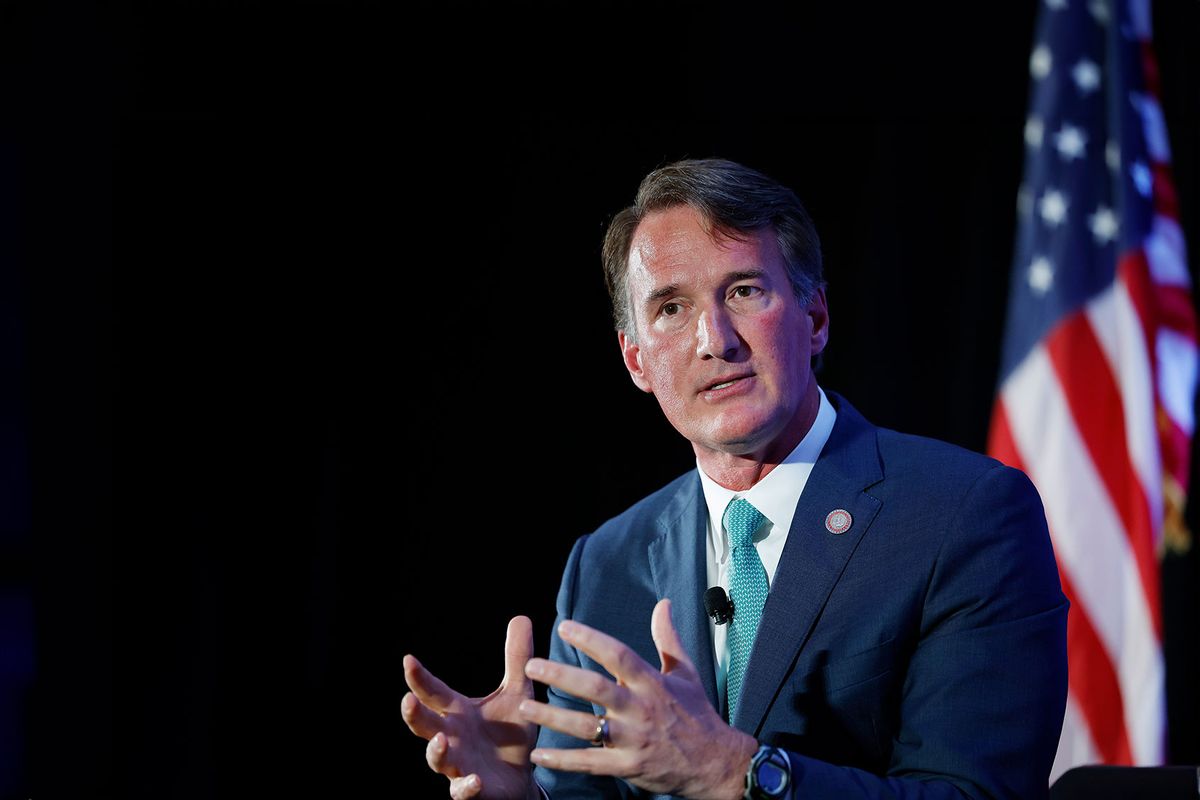The battle for Virginia: Can the last state in the South to not restrict abortion post-Roe survive?

Since the Supreme Court overturned Roe v. Wade last year, nearly half the states in the U.S. have banned abortion. As a result, 25 million women of reproductive age live in states where it’s now harder to access this essential health care. For anyone doing the math at home, that’s 2 in 5 women between the ages of 15 and 44.
The situation is especially dire in the South, where Virginia is the only state that hasn’t restricted abortion rights post-Roe. Clinicians in the Commonwealth are working around the clock to meet the demand from patients who have driven all night from Florida, Georgia, and Mississippi – even as far as Texas – to get necessary health care that’s no longer available in their home state.
Now, the future of abortion access for an enormous swath of the country rests on Virginia’s upcoming elections. For the first time since Roe was overturned, all 140 seats in the state legislature are on the ballot. Democrats are fighting to protect their majority in the state Senate and need just three seats to take the House of Delegates.
We don’t have to guess what will happen if Republicans win; we’ve seen this movie before. Earlier this year, Republicans in Virginia came within one vote of banning abortion. If their bill had passed, it would have gone to Republican Governor Glenn Youngkin, who promised to “happily and gleefully” sign any anti-abortion legislation that came across his desk, no matter how extreme. The resulting change to Virginia law would have been catastrophic for patients across the South. In case there was any doubt about their priorities for the next legislative session, Youngkin’s PAC recently launched their first TV ad of the season: a $1.4 million attempt to argue that their abortion ban isn’t really a ban.
Despite their best Orwellian efforts, the truth is clear: Since 1973, the people of Virginia have had the right to an abortion. If these extremist Republicans take total control of the government, they’ll outlaw abortion and criminalize doctors. A ban is a ban, no matter what you call it. (Just ask Republican candidates in Virginia, who are saying the quiet part out loud.)
The Youngkin-backed ad, complete with pink text on screen, is proof of the unenviable position Republicans have found themselves in this election cycle. When Roe was the law of the land, they could talk about abortion in the abstract. They made promises to anti-abortion activist groups without having to acknowledge the cruel impact of abortion bans on people’s lives or be held accountable to the vast majority of voters who believe abortion should be safe and legal.
So far, Republican efforts to hide dangerous laws behind softer language have come up short.
For the last 14 months, however, Americans have been confronted with the reality of these bans: teenage rape victims forced to give birth, miscarrying patients turned away from emergency rooms and told to return when they’re in sepsis, and countless others taking time off work and scraping together child care and money to travel out of state. All of these restrictions disproportionately affect people of color, people with low incomes, young people, and immigrants – many of the same groups that already have the hardest time accessing health care.
To make matters worse, abortion bans don’t just interfere with reproductive health – they decrease the quality of care across our entire medical system. In a country with the highest maternal mortality rate in the developed world, pregnancy care has suffered as abortion restrictions drive obstetricians out of hostile states. According to one study, women in states that banned abortion after the Court overturned Roe were up to three times as likely to die during pregnancy, childbirth, or in the postpartum period. Fewer medical students are applying to OB/GYN residencies and family medicine programs, threatening to exacerbate existing physician shortages, especially in rural areas. It’s not just abortion patients who are worse off; it’s anyone who needs a doctor.
So far, Republican efforts to hide dangerous laws behind softer language have come up short. Polling shows Virginia voters don’t trust Republican candidates or Youngkin on abortion. Maybe they’ve been following the story of House of Delegates candidate John Stirrup, who scrubbed any mention of his anti-abortion positions from his campaign website after being secretly recorded promising to “support a 100% ban.” Maybe they remember the last time Republicans held power in Virginia and imposed medically unnecessary barriers to abortion care, including mandatory ultrasounds and regulations designed to close health centers and shame patients.
Want a daily wrap-up of all the news and commentary Salon has to offer? Subscribe to our morning newsletter, Crash Course.
It’s not surprising that Virginia Republicans are working hard to conceal their agenda. As it turns out, no one wants their kids and grandkids to have fewer rights than they had. A whopping 70 percent of Virginians believe abortion should be legal. In all seven states where the issue has been on the ballot post-Roe, abortion rights supporters have won. In Ohio, a constitutional amendment to protect abortion rights received nearly double the number of signatures needed to put it on the ballot this month. In less than two weeks, Virginia will either provide a glimmer of hope for extremists – or send an unmistakable message that abortion bans are wildly out of step with what voters want.
As unpopular as abortion bans are, the truth is, these wins don’t happen on their own. They take resources, organizing, and massive get-out-the-vote efforts. Youngkin’s PAC has raised a staggering $15.5 million to try to take control of the government. Virginia Republicans and their donors see an opportunity to buy an abortion ban and launch Youngkin into the national spotlight. We can’t let that happen.
Right now, volunteers in Virginia are knocking on doors and sharing deeply personal abortion stories in hopes of mobilizing their neighbors. Democratic candidates are running in hard-fought races and standing proudly on records of supporting reproductive freedom. As voters across the country consider the positions of presidential candidates and head to the polls in Ohio, where abortion is quite literally on the ballot, another election is underway that will have sweeping consequences for abortion access in America. This may just be the most crucial test case yet for 2024. No matter where you live, if you care about reproductive rights, now is the time to sit up and pay attention to Virginia.
Read more
about abortion access post-Roe:


